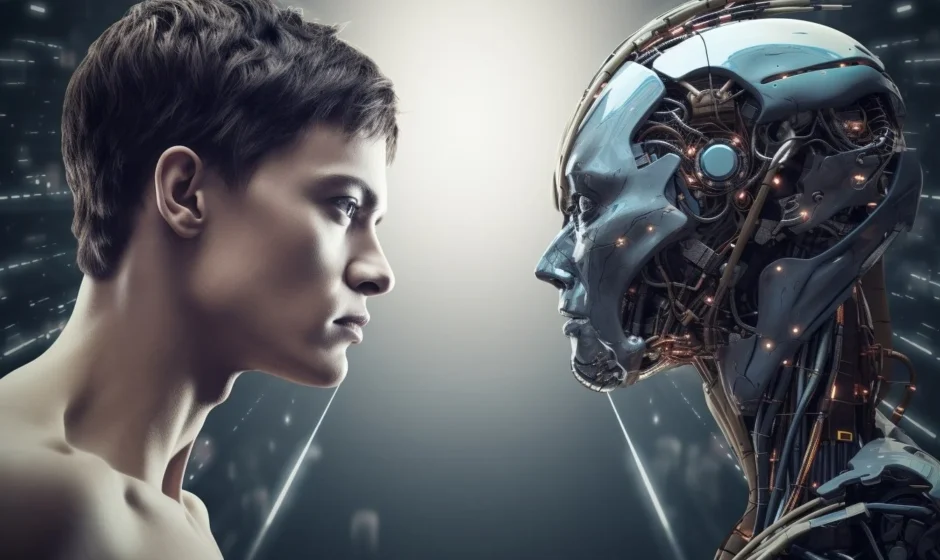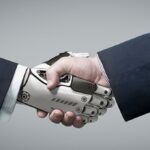Human Creation vs. Machine Intelligence in Quranic Discourse
The rapid advancement of machine intelligence has sparked profound questions about the nature of creation, consciousness, and what it means to be human. In the Islamic worldview, the Quran offers timeless insights into the divine act of human creation that sharply contrast with the rise of artificial intelligence (AI). Exploring this dialogue between human creation and machine intelligence through Quranic discourse reveals unique perspectives on purpose, soul, and knowledge, enriching our understanding of both technology and spirituality.
The Quranic Concept of Human Creation
The Divine Origin of Humans
The Quran repeatedly emphasizes that humans are created by Allah’s deliberate will, made from clay and spirit. This divine origin sets humans apart from all other creations, grounding their existence in a sacred relationship with their Creator.
The Unique Soul (Ruh)
Central to Quranic anthropology is the concept of the Ruh — the soul breathed into humans by Allah. This spiritual essence gives life, consciousness, and moral responsibility, something machine intelligence lacks.
The Purposeful Creation
Humans are created with a clear purpose: to worship Allah and serve as His vicegerents on Earth. This teleological view contrasts with machines, which are designed without inherent purpose or consciousness.
Knowledge and Learning in the Quran
Knowledge as a Divine Gift
The Quran places immense value on knowledge, declaring it as a gift from Allah and encouraging humans to seek it actively. This quest for knowledge is tied to human dignity and progress.
The Human Capacity for Reflection
Humans are endowed with the ability to reflect, reason, and make ethical decisions — faculties that are highlighted throughout the Quran as signs of divine favor.
Distinguishing Between Creator and Creation
While humans can acquire knowledge, the Quran stresses that ultimate knowledge and wisdom belong only to Allah, distinguishing between the finite human mind and divine omniscience.
Machine Intelligence: A Human Endeavor
The Development of AI
Machine intelligence arises from human ingenuity, using algorithms and data to simulate aspects of human cognition. Unlike humans, AI does not possess consciousness or a soul.
The Limits of Machine Learning
Despite impressive capabilities, AI operates within predefined parameters and lacks self-awareness or spiritual insight, contrasting with the Quranic notion of human consciousness.
Ethical Questions Around AI
The rise of AI raises questions about moral responsibility, free will, and the potential to replicate human traits—areas the Quran addresses through the lens of divine creation and ethical boundaries.
The Spiritual Dimension: Soul vs. Algorithm
The Immeasurable Soul
The Quran’s depiction of the soul as an intangible, divine gift resists any attempt to reduce human life to mere biological or mechanical processes.
Consciousness Beyond Computation
Human consciousness involves subjective experience and moral accountability, concepts absent from machine intelligence, which is purely computational.
The Limits of Imitation
While machines can mimic certain human behaviors, the Quranic narrative reminds us that imitation does not equate to genuine creation or divine essence.
Implications for Society and Ethics
-
Ensuring AI development aligns with ethical values inspired by divine principles.
-
Recognizing human dignity above technological capabilities.
-
Using AI as a tool to enhance human potential without replacing spiritual or moral agency.
-
Avoiding the idolization of machines or overestimating their role in human life.
-
Promoting transparency and accountability in AI systems to prevent misuse and protect human rights.
-
Encouraging interfaith and interdisciplinary dialogue to develop ethical frameworks that integrate spiritual wisdom with technological innovation.
AI and the Future of Human Identity
-
Reflecting on what makes humans unique amid growing machine intelligence.
-
Emphasizing spiritual growth alongside technological advancement.
-
Preparing society to integrate AI without compromising core values.
-
Encouraging education, like Quranic studies, to maintain balance between faith and reason.
Quranic Guidance in the Age of Technology
-
The Quran advocates for wisdom and humility in all endeavors.
-
It provides a framework for evaluating the ethical dimensions of AI.
-
Encourages reliance on divine guidance amid uncertainty.
-
Supports the nurturing of human qualities machines cannot replicate.
Balancing Innovation and Faith
-
Innovation should not disconnect humans from their Creator.
-
Technology serves best when it uplifts human purpose.
-
Faith can inform responsible AI development.
-
Maintaining a connection to spirituality guards against dehumanization.
Conclusion
The discourse on human creation versus machine intelligence within the Quran highlights the profound spiritual and ethical dimensions of our existence. While AI demonstrates remarkable technological progress, it cannot replicate the soul, purpose, or consciousness that the Quran attributes solely to human beings. For those interested in exploring such profound topics through a Quranic lens, Muhammadan Quran School offers online Quran classes for kids and adults, nurturing a balanced understanding of faith and modern challenges.



